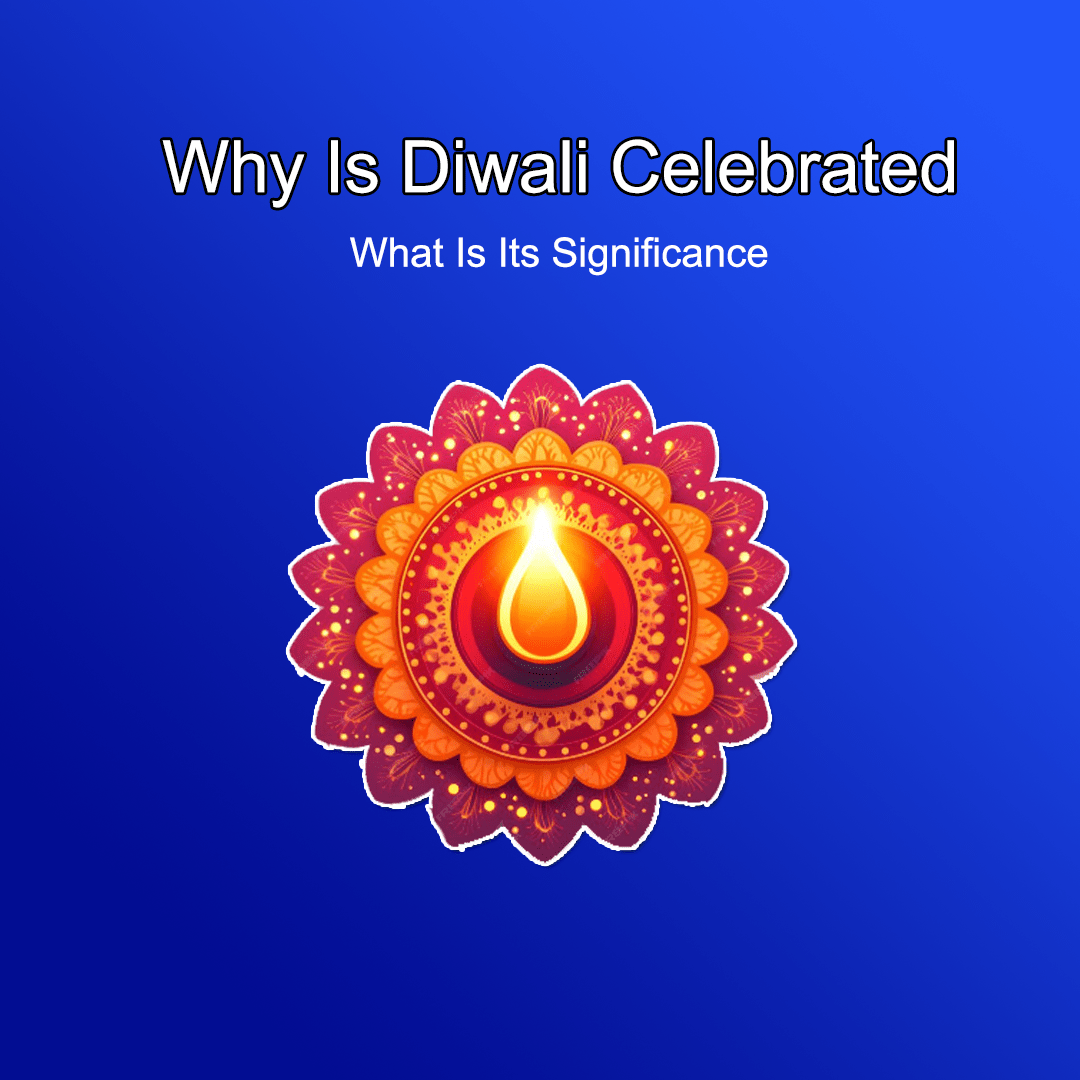Please enter the code we just sent to whatsapp 91-11-46710500 to proceed
Didn't Receive OTP?

Diwali, also referred to as Deepavali, is among the most luminous and happiest festivals of India and the world. For kids, it is like an enchanting time with twinkling lights, sweets, new clothes, relatives' gatherings, and lots of fun. But aside from the fun, Diwali is significant and has a lot of valuable lessons to teach us.
In this blog, we’ll explore why Diwali is celebrated, the importance of Diwali, and what this festival teaches children about life, kindness, and togetherness.
The word Diwali is derived from the Sanskrit word Deepavali, literally a series of lamps. The homes are adorned with diyas (lamp oils), candles, and colored lights during this day. Firecrackers sparkle in the sky, one travels to visit friends and relatives, and delectable sweets are shared.
But Diwali is not all sweets and lights—it's a celebration that also commemorates good triumphing over evil, light triumphing over darkness, and knowledge triumphing over ignorance.
Diwali is celebrated in various ways by various regions of India for different reasons. The main stories as to why Diwali is celebrated are:
1. Return of Lord Rama
In North India, Diwali marks the return of Lord Rama after 14 years of exile in Ayodhya. During those 14 years, he fought and defeated the demon king Ravana. The citizens of Ayodhya greeted him by lighting thousands of lamps, and hence the city was illuminated. That is why we light diyas on Diwali—to remember that truth and goodness have triumphed.
2. Puja of Goddess Lakshmi
In the majority of the Indian territories, Diwali is dedicated to Goddess Lakshmi, who is the deity of prosperity and wealth. The houses are cleaned and illuminated, as individuals believe that Lakshmi arrives at houses that are clean and bright. People pray for prosperity, health, and happiness for the ensuing year.
3. Lord Krishna and Narakasura
In South India, Diwali is associated with the myth of Lord Krishna slaying demon Narakasura. The defeat freed human beings from darkness and fear. A reminder that goodness and bravery shall always triumph.
4. Release of Guru Hargobind Ji
Diwali is important to Sikhs because it celebrates the day Guru Hargobind Ji was released from prison along with 52 other rulers. It is celebrated as a festival of justice and liberation.
5. Nirvana of Mahavira
Diwali in Jains marks the day when Lord Mahavira, the final of the Jain Tirthankaras, attained nirvana (spiritual awakening). It reminds everyone of peace, wisdom, and tolerance.
So, why do we celebrate Diwali? It is celebrated to remember different stories of bravery, kindness, and intelligence. But the common message is this: light overcomes darkness.
The Importance of Diwali
Now that we know the stories, let us learn why Diwali is important in our lives.
1. Victory of Kindness
Diwali also imparts the lesson that no matter how strong evil seems to be, goodness will triumph. Whether Lord Rama wins over Ravana or Krishna overcomes Narakasura, Diwali inspires children to choose honesty, courage, and niceness.
2. Dispersion of Light and Virtue
Lighting diyas is not only lighting up houses, but also filling our hearts with goodness. Just like one small lamp can chase away darkness, even a small amount of kindness can brighten up the world.
3. Family Bonding
Diwali brings families together. Children, parents, and grandparents clean the house, decorate it, make sweets, and pray together. This strengthens family love and creates joyful moments.
4. Thankfulness
Diwali is also the time to show gratitude—for relatives and friends, for food and health, and for the favors that have come our way. It is the time to give as much as we can to others.
5. New Beginnings
Individuals start new ventures or buy new goods during Diwali, as they believe that it is an auspicious time. Children are taught the necessity of new beginnings and optimistic attitudes.
Every family celebrates Diwali differently, but the following are some of the common practices children will relate to:
Cleaning and decorating homes with rangoli, light, and flowers.
Lighting diyas and candles to ward off darkness.
Performing puja to receive blessings from Goddess Lakshmi and Lord Ganesha.
Eating sweets and giving gifts to relatives and friends.
Wearing new clothes and having meals together with the family.
Bursting crackers (although most families use eco-friendly celebrations nowadays).
Diwali is not only a festival of happiness—it also shows us what is right in life:
1. Be brave and good: As Rama and Krishna are, always be a champion of what is right.
2. Share and care: Sharing sweets, gifts, and love makes everyone happy.
3. Clean your place: Cleaning the houses prior to Diwali reminds us to clean.
4. Respect traditions: Puja, diyas, and rangoli remind us of our rich heritage.
5. Glow from within: Real light comes from goodness, truthfulness, and kindness.
While celebrating, it is also essential to take care of our planet. Here are a few eco-friendly Diwali tips for children:
Use clay diyas instead of plastic lamps.
Make DIY decorations using paper, flowers, or recycle materials.
Share sweets with poor people.
Steer clear of loud firecrackers to ensure animals and nature are safe.
Plant a tree as a reminder of fresh starts.
So why is Diwali celebrated? Because it reminds us that good triumphed over evil, light over darkness, and love over hate. And why is Diwali significant? It's a time to celebrate family, kindness, appreciation, and new beginnings.
For children, Diwali is a holiday of sweets and lights, but it's also a holiday which fills our heart with hope and fills us with the message to glow in life.
If you're celebrating Diwali this year, don't forget to light diyas at home, but also spread love, joy, and goodness wherever you are.
Happy Diwali!!!
Shape Your Kid's Future with Bambinos Classes | World’s first Bhagavad Gita course for Kids | Click here to Book a Free Class Limited time offer.